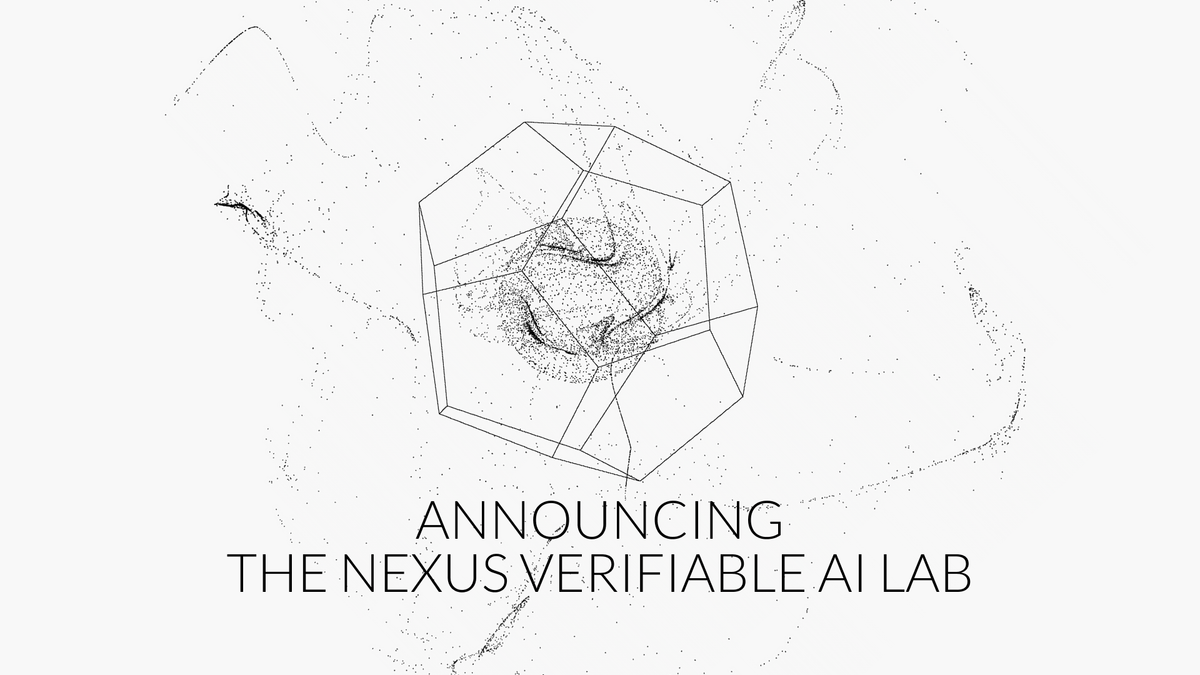USDX, Powered by M0: The Native Dollar of the Verifiable Economy
In today’s fragmented stablecoin landscape, many systems are either chasing liquidity or retrofitting incentives. Traders face operational complexity, developers

Why have a presence at Berlin Blockchain Week? Well, at Nexus we appreciate that Europe is a relatively mature regulatory market, with a longer history of institutional interest in digital assets.
Berlin Blockchain Week offered an intimate opportunity to learn from the insights of this regional Web3 ecosystem, get exposure to the robust suite of European developers, and lay foundation with a strong Web3 founder and user cohort.
Arriving in Nexus fashion (literally), we kicked off BBW with a House of ZK event and panel alongside representatives from the Ethereum Foundation, Starkware and Gevulot. We discussed everything from enterprise applications to the benchmarking needed to optimize, compare and refine different zkVMs across general and more application specific methods.
There’s a need for more standardized benchmarking at the general zkVM level, and also an additional benchmarking layer for how zk should best be applied across industries.
It was great to reconnect with several foundational partners of Nexus: Snarkify and Gevulot's ZkCloud.
There is so much brewing in the ZK space, for a slow, steeped adoption pathway (no pun intended).

Stablecoin Day was rich with insights. As previously identified, Germany and the EU have grappled with clear, but often limiting, regulation around stablecoins for a little over a year already.
During Stablecoin Day, a core example of regulatory tension around stablecoins was discussed in the form of the German regulatory body (BaFin) taking issue with German citizens getting access to Ethena’s USDe and sUSDe. BaFin banned the issuance of its synthetic dollar token USDe and froze its reserves. BaFin also flagged Ethena’s yield-bearing token sUSDe as a likely unregistered security due to its profit-generating structure and lack of a prospectus.
As a result, Ethena agreed to shut down its German entity, withdraw its license application, and migrate users to its offshore BVI affiliate. This is a clear example of how a decentralized global currency network must adapt to regional regulations if it hopes to maintain a global coverage in good legal standing.
It’s clear that these regional differences in regulation will be limiting factors in adoption and ease of operation for the foreseeable future. It will be important to consider this as companies look to issue their own stablecoins and to determine what the ramifications will be if those assets are yield-bearing, and improperly distributed to EU citizens.
As has been proposed before, ZK offers solutions to enforce these regulations for users within certain jurisdictions, without compromising on privacy, self-custody or other desirable characteristics of Web3.
Nexus is actively implementing these insights as we design our ecosystem for global use.
Another fascinating discussion led by Wildcat Finance was around undercollateralized credit – unlocking it and the massive benefits that would ensue across DeFi, and the world.
Unlocking undercollateralized credit in Web3 can dramatically expand access to financial empowerment by enabling individuals and businesses, especially in underserved or credit-invisible regions, to borrow based on reputation, onchain history, or real-world income rather than requiring excessive collateral.
This shift opens DeFi to a broader user base, fostering inclusive economic participation. It also enhances the sustainability of DeFi by supporting real-world use cases, increasing capital efficiency, and creating more resilient lending models that better mirror traditional credit systems while preserving transparency and decentralization.
Gaming still remains a huge opportunity for Web3, if designed correctly. The industry has been talking about removing the onboarding and UX friction for years at this point, with millions poured into projects that (inevitably) get too focused on their token. This reinforces my confidence in teams building with a product-first mindset, and using tokens as ways to reward and retain gamers, rather than making it a core identity piece.
Nexus is working closely with PlaysOut here, to distribute fun mini games and more ways to earn to our ecosystem of 2.6 million users worldwide. This partnership will also drive onboarding to Web3, and Nexus, from Playsout’s touchpoints across other applications and ecosystems throughout Web2.
At the Onchain Growth Summit, Ian Rogers of Ledger led an inspiring discussion. As someone who had seen the rise of digital music, his resounding words left with the audience were:
"It took digital music 25 years to become mainstream. Blockchain is on the same adoption path. Now, startups have the challenge of timing PMF along this adoption curve, with around two to five years to get it right."
It’s definitely not easy to do this, and I have the utmost respect for founders and teams that keep building towards this goal, no matter what. We’re approaching a goldilocks zone of industry acceptance and maturity that Nexus is positioned to dominate with a strong global presence. If you’re a new or experienced builder in Web3, come work with us as we onboard businesses and individuals to the benefits of Web3 and AI.
The excitement of the week culminated in the AI Agent Summit, and in particular the panel debate about "Why another AI L1?" It was a pleasure to chat all things we’re excited about, at the intersection of AI x Crypto, with fellow panelists from Oasis, Render Network and Eigenlayer.

Learn more about how we work at the intersection of AI and blockchain.
Unlike legacy chains retrofitted for AI, Nexus introduces proof-carrying data, enabling AI agents to embed cryptographic guarantees directly into their outputs, making every action verifiable by default. Its horizontally scalable architecture, powered by recursive ZK and native rollups, allows AI workloads to grow without central bottlenecks or trust assumptions, unlocking the ability to power million-agent simulations.
Nexus isn’t just a technical upgrade, it introduces primitives to reimagine the business logic of the Internet itself for the benefits of Web3 and AI.